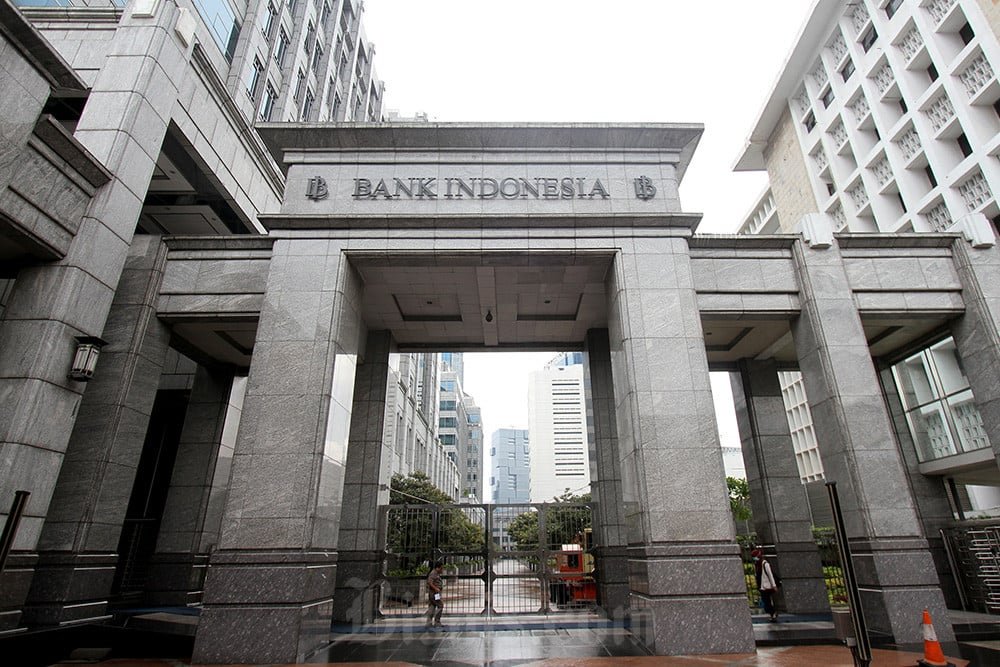Indonesia’s Economic Growth in 2025 is projected to reach 5.6%, according to Bank Indonesia (BI). This optimistic forecast demonstrates the nation’s resilience and recovery from the pandemic. Key factors driving this growth include robust household consumption, expanding exports, and government-led structural reforms. Consequently, Indonesia aims to solidify its position in the global economy by attracting investment and maintaining monetary stability.
Indonesia Economic Growth 2025: BI’s Forecast in Focus
Bank Indonesia (BI) confidently predicts strong economic growth over the next two years. At a press conference in Jakarta, BI Governor Perry Warjiyo announced, “Economic growth for 2024 is projected to range between 4.7% and 5.5%, increasing to 4.8%–5.6% in 2025.” as reported by Liputan6.com.
He further elaborated, “Investments are projected to grow positively in the fourth quarter of 2024, supported by the completion of various National Strategic Projects and private investments driven by government incentives.” As a result, these investments will boost infrastructure, create jobs, and attract foreign capital, paving the way for inclusive development.
What is Driving Indonesia’s Economic Growth in 2025?
Several factors will fuel Indonesia’s growth in 2025, with household consumption leading the way. Specifically, stable consumer confidence and the positive effects of regional elections will keep domestic spending strong.
In addition, government consumption is set to rise, driven by increased year-end spending. Moreover, government incentives are spurring investments in key sectors like manufacturing and infrastructure.
However, while weak global economic conditions may slow non-oil and gas exports, growth in construction and retail trade will continue to support Indonesia’s economic stability.
Barriers to Indonesia’s Growth Goals
Indonesia must overcome several challenges to achieve its growth targets. BI Governor Perry Warjiyo warned of global economic uncertainties, stating, “Global economic growth in 2025 is projected to slow to 3.1% from 3.2% in 2024.” He also explained, “The developments in the global economy, coupled with persistently high uncertainty in financial markets, require strong policy responses to mitigate their negative impacts on developing economies, including Indonesia.”
Furthermore, U.S. President Donald Trump’s threat to impose higher tariffs on countries moving away from the U.S. Dollar further intensifies these uncertainties. As a result, a stronger Dollar could shift global investments back to the U.S., reducing capital inflows into emerging markets like Indonesia. These dynamics may challenge Indonesia’s export performance and financial stability, requiring coordinated policy efforts to address these risks.
Investment Opportunities in Indonesia’s Growing Economy
Indonesia’s economic growth in 2025 opens numerous opportunities for investors. For instance, renewable energy, infrastructure, and technology-driven industries are poised for significant expansion, supported by government incentives and strategic projects.
Additionally, the completion of National Strategic Projects will improve connectivity and regional economies, creating a favorable climate for private sector investment. Furthermore, the government’s focus on digital transformation unlocks opportunities in e-commerce and fintech.
With strong consumer confidence and an improving regulatory framework, Indonesia presents itself as a prime destination for sustainable, high-yield investments in Southeast Asia.
A Promising Path for Indonesia in 2025
Indonesia’s 2025 economic outlook showcases a country ready to tackle challenges and seize opportunities. Household consumption, targeted investments, and strategic reforms drive this growth. Nonetheless, global uncertainties, such as financial market volatility and slowing exports, present risks.
Even so, Indonesia’s proactive policies and resilient economy are expected to minimize these impacts. Ultimately, as the nation continues its recovery, strategic planning and economic resilience will pave the way for long-term prosperity and a stronger presence in the global economy.
Source: :liputan6.com, pajak.com
Image: bisnis.com/ Arief Hermawan P


